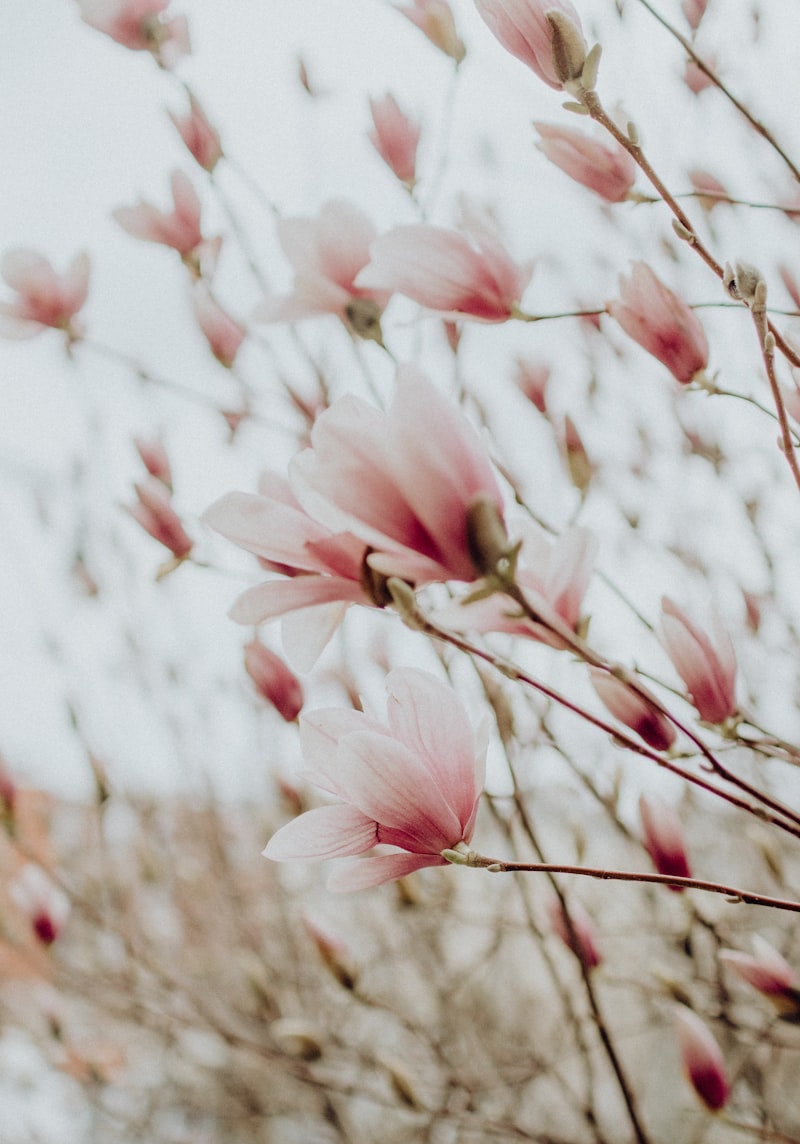One of the simplest and most effective ways to manage seasonal allergies naturally is by paying attention to what you eat. Certain foods like apples, onions, and berries contain quercetin, a natural compound known for its anti-inflammatory and antihistamine properties. Including these in your diet can help reduce allergic reactions and keep symptoms at bay.
Another natural ally in the fight against allergies is local honey. Consuming honey produced in your area introduces small amounts of pollen into your system, gradually building your immunity and reducing the severity of allergic reactions over time. It’s like a sweet, sticky shield against those pesky allergens.
If you’re looking for something more immediate, saline nasal rinses are a game-changer. Using a saline solution to rinse your nasal passages helps clear out allergens like pollen and reduces inflammation, providing instant relief without any side effects. It’s a bit like giving your sinuses a refreshing shower.
And let’s not forget the power of steam. Taking a hot shower or inhaling steam over a bowl of hot water can help soothe irritated nasal passages and relieve congestion. It’s a simple, comforting remedy that’s perfect for those days when allergies leave you feeling stuffed up and miserable.
Managing seasonal allergies naturally is all about finding what works best for you. Whether it’s adjusting your diet, embracing local honey, rinsing with saline, or enjoying a steamy shower, these methods can help you take control of your symptoms and get back to enjoying the season. After all, why let allergies dampen your day when nature offers such wonderful solutions?
Springtime Solutions: Effective Ways to Combat Seasonal Allergies Naturally
As spring arrives, so does the beauty of blooming flowers and warmer weather. However, for many, it also brings seasonal allergies that can dampen the joy of the season. If you find yourself sniffling and sneezing more often during this time of year, fret not! There are several natural remedies that can help alleviate symptoms and let you enjoy spring to the fullest.
One of the most effective ways to combat seasonal allergies naturally is by keeping your surroundings clean. Dusting and vacuuming frequently can reduce the amount of pollen and allergens indoors. This simple step can make a significant difference in easing your symptoms.
Another natural approach is to incorporate local honey into your diet. Consuming a tablespoon of local honey daily is believed to help build immunity to local pollen, reducing the severity of allergic reactions over time. It’s a sweet remedy that many find enjoyable and beneficial.
Additionally, steam inhalation with essential oils like eucalyptus or peppermint can provide quick relief from congestion and sinus pressure. Adding a few drops of these oils to hot water and inhaling the steam can help open up nasal passages and soothe irritated sinuses.
For those looking to supplement their diet, natural antihistamines like quercetin, found in foods like apples, onions, and berries, can help stabilize mast cells and reduce the release of histamines in the body. This can lead to decreased inflammation and fewer allergy symptoms.
Lastly, staying hydrated is key. Drinking plenty of water throughout the day can help thin mucus and keep your nasal passages moist, making it easier to expel allergens from your system.
By incorporating these natural solutions into your daily routine, you can effectively manage seasonal allergies without relying solely on medications. Embrace springtime with open arms and enjoy the beauty of the season, allergen-free!
Nature’s Defense: Herbal Remedies for Seasonal Allergy Relief
Seasonal allergies can turn a beautiful spring day into a sneezing marathon. For those seeking relief beyond traditional medications, herbal remedies offer a natural alternative to combat hay fever and other allergy symptoms. Nature provides a bounty of plants known for their anti-allergic properties, making them popular choices among those preferring holistic approaches.
One of the most celebrated herbs for allergy relief is stinging nettle. Despite its prickly reputation, this herbaceous plant is prized for its ability to reduce inflammation and histamine production, key factors in allergic reactions. Whether brewed into a tea or taken as a supplement, stinging nettle has shown promise in easing symptoms like nasal congestion and itchy eyes.
Another herb gaining recognition is butterbur. This plant has been used for centuries in traditional medicine for its anti-inflammatory effects, particularly in alleviating migraines and hay fever symptoms. Butterbur extracts are available in capsules and can provide relief from sneezing, runny nose, and itchy throat without the drowsiness often associated with antihistamines.
For those looking to boost their immune system against seasonal allergens, astragalus root offers a potent solution. Known for its immune-strengthening properties, astragalus root helps the body adapt to stressors like pollen and dust, reducing the severity of allergic reactions over time. It can be consumed as a supplement or brewed into a decoction for a more concentrated effect.
Incorporating these herbal remedies into your allergy management plan can provide natural relief while minimizing the side effects often experienced with conventional medications. However, it’s essential to consult with a healthcare provider before starting any new treatment regimen, especially if you have existing medical conditions or are taking other medications.

This article provides an overview of herbal remedies for seasonal allergy relief, highlighting their benefits and natural properties in a conversational and engaging tone.
From Pollen to Peace: Holistic Approaches to Soothe Seasonal Allergies
Imagine this: you’re surrounded by blooming flowers, the sun is shining, but instead of itching and scratching, you’re enjoying the beauty of nature without a care in the world. That’s the promise of holistic methods for managing seasonal allergies.
One of the most effective holistic remedies is honey. Not just any honey, though – local honey. The idea behind this remedy is simple yet powerful: by consuming honey produced by bees in your area, you expose yourself to small amounts of pollen. Over time, this exposure can help your body build a tolerance to the allergens, reducing your symptoms naturally.
Another approach gaining popularity is acupuncture. This ancient Chinese practice involves inserting thin needles into specific points on your body. It’s believed to stimulate energy flow and promote healing. For allergy sufferers, acupuncture can help alleviate symptoms by boosting the immune system and reducing inflammation, providing relief that goes beyond just masking the symptoms.
Essential oils are also making waves in the allergy relief scene. Oils like peppermint, eucalyptus, and lavender have natural anti-inflammatory and antihistamine properties. They can be used in aromatherapy or diluted and applied topically to ease congestion and soothe irritated sinuses. Imagine breathing in the refreshing scent of peppermint and feeling your airways open up naturally – it’s like a breath of fresh air amidst the pollen haze.

Lastly, let’s not forget the power of diet. What you eat can play a significant role in how your body responds to allergens. Incorporating anti-inflammatory foods like turmeric, ginger, and omega-3 rich fish can help reduce the overall inflammation in your body, making you less susceptible to allergy symptoms.


So there you have it – from honey to acupuncture, essential oils to diet adjustments, holistic approaches offer a variety of natural ways to tame seasonal allergies and reclaim your enjoyment of every season.
Breathe Easy: Top Natural Supplements for Seasonal Allergy Prevention
First up, Quercetin. This powerful antioxidant is found in many fruits and vegetables like apples, onions, and berries. It works wonders for allergies by stabilizing the release of histamines in the body, which are chemicals involved in allergic reactions. Think of it as your body’s shield against those pesky pollen invaders.
Next, Butterbur. No, it’s not something you spread on toast. Butterbur is actually a herb that has been used for centuries to treat various ailments, including allergies. It contains compounds that can reduce inflammation in the airways, making it easier for you to breathe freely when pollen levels are high.
Ever heard of Nettle Leaf? Despite its sting when fresh, nettle leaf in supplement form is a game-changer for allergy sufferers. It contains natural antihistamine properties that can alleviate symptoms like sneezing and itching. It’s like nature’s way of saying, “Take that, allergies!”
And let’s not forget Vitamin C. Known for its immune-boosting properties, Vitamin C can also help during allergy season by reducing inflammation and acting as a natural antihistamine. It’s like giving your immune system a high-five to keep those allergy symptoms at bay.
Last but not least, Probiotics. These friendly bacteria aren’t just good for your gut; they can also play a role in modulating your immune response, potentially reducing the severity of allergic reactions. A happy gut might just mean happier allergy seasons for you.
Natural supplements offer a promising alternative for managing seasonal allergies without the side effects that can come with traditional medications. Whether you choose quercetin for its histamine-blocking properties or nettle leaf for its natural antihistamines, these options can help you enjoy the changing seasons without the sniffles and sneezes. Ready to take on allergy season like a champ? Try incorporating these natural supplements into your routine and breathe easy all year round.
Outdoor Bliss: How to Enjoy Nature Without the Sneezes
Do you love the great outdoors but dread the sneezing fits and itchy eyes that often come with it? Don’t worry, enjoying nature doesn’t have to be a battle against allergies. With a few smart strategies, you can breathe easy and make the most of your time outside.
First off, timing is key. Pollen levels tend to be highest in the early morning and late afternoon. If possible, plan your outdoor activities for midday when pollen counts are lower. This simple adjustment can make a big difference in how much you enjoy your time outdoors.

Next, dress strategically. Opt for long sleeves, pants, and a hat to minimize skin exposure to pollen. Sunglasses can help protect your eyes from allergens as well. Choosing the right clothing can create a barrier between you and potential allergens, keeping you comfortable throughout your outdoor adventures.
Another effective strategy is to check pollen forecasts regularly. Many weather websites and apps provide daily pollen forecasts for your area. Use this information to plan your outdoor activities on days when pollen counts are expected to be lower, reducing the likelihood of allergy symptoms spoiling your fun.
Consider your location carefully too. Urban areas tend to have higher levels of air pollution and allergens compared to rural or forested areas. If possible, choose parks or nature reserves that are away from busy roads and industrial areas. This can significantly reduce your exposure to airborne allergens while maximizing your enjoyment of nature.
Lastly, don’t forget your allergy medication. Over-the-counter antihistamines and nasal sprays can provide relief from allergy symptoms and allow you to fully immerse yourself in outdoor activities. Always consult with a healthcare professional before starting any new medication regimen to ensure it’s safe and effective for you.
By following these tips, you can reclaim your outdoor bliss without worrying about allergies holding you back. Whether you’re hiking, picnicking, or simply enjoying a leisurely stroll, being prepared and proactive can make all the difference. So, get out there and enjoy the fresh air with confidence!
Frequently Asked Questions
Are there specific herbs that can reduce seasonal allergy symptoms?
Discover which specific herbs are effective in alleviating seasonal allergy symptoms with our concise guide. Learn about natural remedies that can provide relief from common allergy issues.
How effective are essential oils in managing seasonal allergies naturally?
Learn about the effectiveness of using essential oils for managing seasonal allergies naturally, including popular oils like peppermint and eucalyptus, their potential benefits, and safety considerations.
What lifestyle changes can I make to lessen seasonal allergy reactions?
Learn effective lifestyle changes to reduce seasonal allergy reactions with practical tips on managing indoor air quality, monitoring pollen counts, and adopting a balanced diet rich in anti-inflammatory foods. Discover how regular exercise and proper hydration can also play a crucial role in minimizing allergy symptoms.
What are the most effective natural remedies for seasonal allergies?
Discover effective natural remedies for seasonal allergies with our concise guide. Learn about proven methods like local honey, saline nasal rinses, and herbal supplements to alleviate symptoms naturally.
How can diet help alleviate seasonal allergy symptoms?
Discover how adjusting your diet can reduce seasonal allergy symptoms by focusing on foods rich in antioxidants, omega-3 fatty acids, and vitamin C. These nutrients can support immune function and reduce inflammation, potentially easing allergy reactions. Avoiding trigger foods like dairy or processed sugars may also help minimize symptoms.



